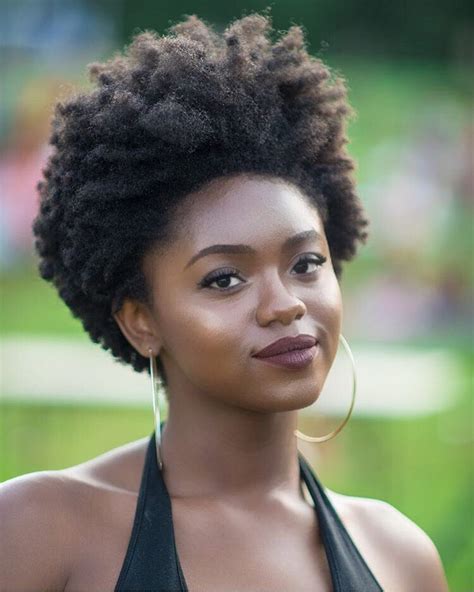Outlining Hair Type Spectrum for Black People

Black hair exhibits an array of textures, ranging from loose curls to tightly coiled strands. The Andre Walker Hair Typing System categorizes these textures into four primary types:
Type 3: Curly
- Subtype 3A: Loose, S-shaped curls
- Subtype 3B: More defined, spiral-shaped curls
- Subtype 3C: Tight, springy curls
Type 4: Coily
- Subtype 4A: Coiled, springy strands with a “S” or “Z” pattern
- Subtype 4B: Smaller, tightly-packed coils
- Subtype 4C: Extremely tightly coiled strands, often described as “zigzag” or “kinky”
Embracing Your Unique Texture
The curly and coily hair types of Black people are rich in character and beauty. Understanding your specific hair texture will empower you to embrace its unique qualities and tailor your hair care routine accordingly.
Unveiling Essential Care Techniques
Caring for curly and coily hair requires specific techniques and products to maintain its health and vibrancy. Implement the following practices:
1. Gentle Cleansing
- Wash your hair less frequently than straight hair (once or twice a week)
- Use sulfate-free shampoos to avoid stripping natural oils
- Co-wash with conditioners that cleanse while moisturizing
2. Deep Conditioning
- Apply deep conditioners weekly or bi-weekly to replenish moisture
- Leave on for 20-30 minutes under a plastic cap or steamer for optimal absorption
3. Leave-in Conditioner
- Use a leave-in conditioner daily to lock in moisture and define curls
- Look for products containing humectants like aloe vera or glycerin
4. Protective Styling
- Protect your hair from damage by using protective styles like braids, twists, or buns
- Avoid tight hairstyles that can cause breakage
5. Minimizing Heat Styling
- Limit the use of heat styling tools as heat can damage curls
- If using heat, always apply a heat protectant spray
Exploring Styling Options
Embrace your natural curls with these styling techniques:
1. Finger Coiling
- Dampen your hair and apply a curl defining cream
- Use your fingers to wrap individual strands around your finger to create coils
2. Diffusing
- Use a diffuser attachment on your blow dryer to gently dry your hair while enhancing curls
- Dry your hair on a low heat setting and avoid over-drying
3. Curl Defining Gel
- Apply a curl defining gel to damp hair and distribute evenly
- Scrunch your hair to activate the gel and encourage curl formation
4. Twist-Out
- Section your hair into small strands
- Twist each strand and secure with clips
- Leave in overnight or for several hours, then unravel for defined curls
5. Bantu Knots
- Create small sections of hair and wrap them around themselves to form knots
- Secure with hair ties or rubber bands
- Remove after several hours or overnight for compact, voluminous curls
The Power of Hydration
Curly and coily hair is prone to dryness due to its tightly coiled structure. Infusing moisture into your hair is crucial for maintaining its health and preventing breakage. Stay hydrated by drinking plenty of water and use products that contain moisturizing ingredients like aloe vera, shea butter, or coconut oil.
The Science of Curly Hair
The unique structure of curly and coily hair is attributed to the shape of its hair follicles. Oval hair follicles produce straight hair, while flat or elliptical hair follicles give rise to curly or coily textures. The degree of curvature is determined by the angle at which the follicles are positioned on the scalp.
Embracing Diversity
Recognize that the curly and coily hair types of Black people encompass an incredible range of textures and patterns. Embrace the beauty of your unique hair and celebrate the diversity within our community.
Dispelling Common Myths
Avoid falling prey to these common myths about curly hair:
1. Curly hair cannot grow long.
- With proper care and nurturing, curly hair can grow long and healthy.
2. Curly hair is difficult to manage.
- Understanding your hair type and using the right techniques can make curly hair manageable and enjoyable.
3. Curly hair requires frequent washing.
- Over-washing curly hair can strip it of its natural oils, leading to dryness and breakage.
4. Curly hair is more prone to damage.
- While curly hair can be more fragile than straight hair, it is not inherently more prone to damage with proper care.
5. Curly hair is not professional.
- Curly hair is beautiful and versatile, and it is suitable for all settings, including professional environments.
In Conclusion
Embracing your curly or coily hair as a Black person is a journey of self-love, empowerment, and appreciation of your unique beauty. Understanding your hair type, embracing its natural texture, and implementing appropriate care techniques will unleash its full potential and allow you to radiate confidence in your personal style.
Additional Tips:
- Use a wide-toothed comb: This helps prevent breakage and detangle your hair without causing damage.
- Avoid brushing your hair when dry: Brushing dry curly hair can lead to frizz and breakage.
- Trim your hair regularly: Trimming split ends will keep your hair healthy and promote growth.
- Protect your hair from the sun: UV rays can damage your hair, so wear a hat or scarf when outdoors for extended periods.
